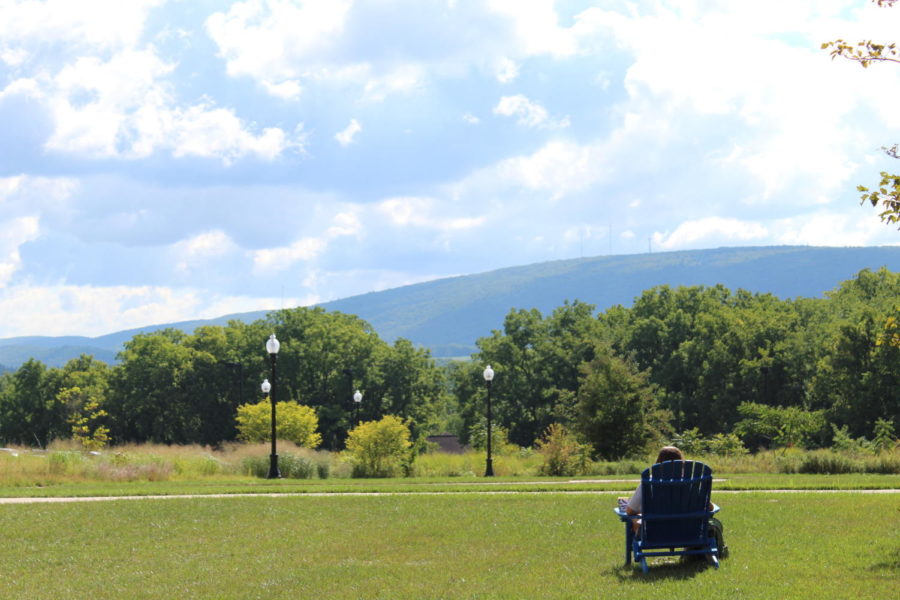COVID “Aftermath”: an introvert’s perspective
September 2, 2022
The COVID-19 pandemic has undeniably upended the past (almost) three years of our lives regardless of age, socioeconomic status, geographic location, etc. However, I am interested in taking a deeper look into the new normal for younger populations (in particular college students), and investigating how the pandemic has reshaped our public understanding of health. How has our ability to socialize been impacted? What mental shifts have we made regarding public health? Will graduation day be met with anticipation for our bright futures ahead, or dread and angst as we embark on a new chapter riddled with life-threatening unknowns? I would like to preface this piece by stating that I am a self-proclaimed introvert. Because of this, I was able to find more peace and comfort being confined to the four corners of my room. I understand that many people could not find solace in their home environments, whether that be due to environmental stressors or grappling with isolation as an extrovert.
Despite everyone’s varying situations, it is true that emotions surrounding COVID have shifted with each stage of the pandemic. Because of our innate human ability to adapt to new changes and find shreds of positivity during dark times, my first lockdown was defined by whipped coffee, power walks, Tik Tok dances and (compulsorily) Outer Banks binges. During this time, there was an understanding that everyone was locked down in their homes and recreating in the same ways; this assumption minimized FOMO for some, and allowed others to come to terms with this new reality in their own time. As we moved further into the pandemic, people (even introverts like myself) were itching to socialize again, and longed for the social connection they once had. Frustrations grew and tensions rose, as did academic and professional expectations. The pandemic was no longer viewed as a social battery recharge—it was seen as a time of tension, with a new and old reality trying to coexist. Attending class with masks on, walking through the Bison in a certain path and even opening packages with gloves on became the new normal. Although COVID is still very much present today, there is a greater sense of ease around the subject with vaccine rollouts, clearly defined quarantining rules and campus safety guidelines being implemented. I use the term “aftermath”, not because COVID has stopped affecting lives, but because we’re moving towards a place where the height of COVID is hopefully in the past, and a life of relative normalcy is on the horizon.
In order to avoid long rants and tangents, I have decided to divide the effects of COVID into three categories: social, professional and personal. Before I dive into the social aftermath of COVID, I am going to reiterate that I am an introvert. These stances are solely through my lens and based on my experiences. Socially, two things have happened. One, two years of isolation has created anxiety when speaking to both strangers and friends, and two, we fear that by seeing people our physical health is in jeopardy. Not only is it difficult to follow through with plans, maintain energy in social settings and to read social cues, but it is hard to trust that your physical health is safe as well. There is also a lot of social pressure to not have concerns about COVID. Messages like, “Enjoy your time in college” and “Don’t let a disease waste your youth” haunt many Gen-Zers, and create a strange conjunction of resentment about the situation with guilt for not taking advantage of their “precious school years.”
Some interesting developments have ensued regarding work and professional life as well post-pandemic (we’re not really post-pandemic but you know what I mean). Every job I’ve had in the past two years, whether it’s been on-campus or off-campus, has involved masking or a remote/hybrid situation. I’ve personally found that it’s hard to build the same level of connection with co-workers when they can’t see your face or if you only meet through a screen. It’s something I’ve learned to adjust to, but I have also learned through this experience that in-person collaboration makes me more productive, and that it is easier for me to be inspired by my peers when we work face to face. I am fortunate enough that I have had the experience of working in a professional setting in person before, but I’d bet there are quite a few students who are feeling a sense of dread at the thought of being thrown into the real world and into a real job without any in-person work experience. Of course times are shifting and it is much more normal to work remotely full-time, but I can sympathize with those feelings of uncertainty when it comes to in-person work arrangements.
The last aspect of COVID’s aftermath that I’d like to touch upon is personal development. In my experience, and in the experiences of people I’ve spoken to, the pandemic changed us in some way. For better or for worse, we have emerged from our cocoon of isolation a different person. By no means was this a drastic personal change for everyone, but whether it was with self reflection or introspection, each of us has taken something away from this experience. Although the aftermath of COVID has left many of us with social stress and health anxiety, we have also gained positive traits. I am confident in our newfound ability, as a collective University community, to offer support to one another, to adjust to global emergencies we may face and to continue finding and creating little moments in our day that spark joy.




















